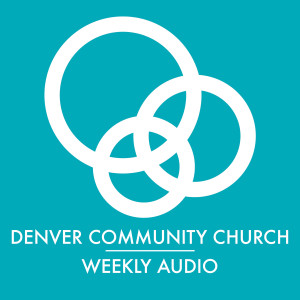
God never speaks in this book. With all of the accusations and the questions put forth; God remains silent. A feeling of distance adds to this sense of God not even hearing the cries or the prayers. But someone is listening. Someone is seeing. The first words spoken by the widow are, “Look, Lord.” She is crying out, “God can’t you, won’t you look at me?!” And then the geber shows up and says, “I have seen …” There is someone at last. Now, in the final poem, a prayer, there is no longer first- person singular, but first-person plural.
What we witness is those who are suffering move toward one another, lament, cry out and eventually are found praying together. It’s possible that right there, in the midst of the flesh and bone of human beings, in that very place is where God is. What this teaches us is that God is present in the other - in the midst of pain, hardship, disappointment - when we cry out and we are not alone in our cry but surrounded by others. That is God being present. Too often we try to have answers, but maybe we are the answer. An answer given simply by us showing up.
More Episodes
 2020-07-20
2020-07-20
 723
723
 2020-07-15
2020-07-15
 730
730
 2020-07-07
2020-07-07
 743
743
 2020-07-01
2020-07-01
 812
812
 2020-06-25
2020-06-25
 774
774
 2020-06-14
2020-06-14
 880
880
 2020-06-06
2020-06-06
 814
814
 2020-05-26
2020-05-26
 805
805
 2020-05-18
2020-05-18
 830
830
 2020-05-11
2020-05-11
 835
835
 2020-05-06
2020-05-06
 719
719
 2020-04-20
2020-04-20
 850
850
 2020-04-13
2020-04-13
 795
795
 2020-04-05
2020-04-05
 851
851
 2020-03-29
2020-03-29
 930
930
 2020-03-22
2020-03-22
 890
890
Create your
podcast in
minutes
- Full-featured podcast site
- Unlimited storage and bandwidth
- Comprehensive podcast stats
- Distribute to Apple Podcasts, Spotify, and more
- Make money with your podcast
It is Free
- Privacy Policy
- Cookie Policy
- Terms of Use
- Consent Preferences
- Copyright © 2015-2024 Podbean.com





